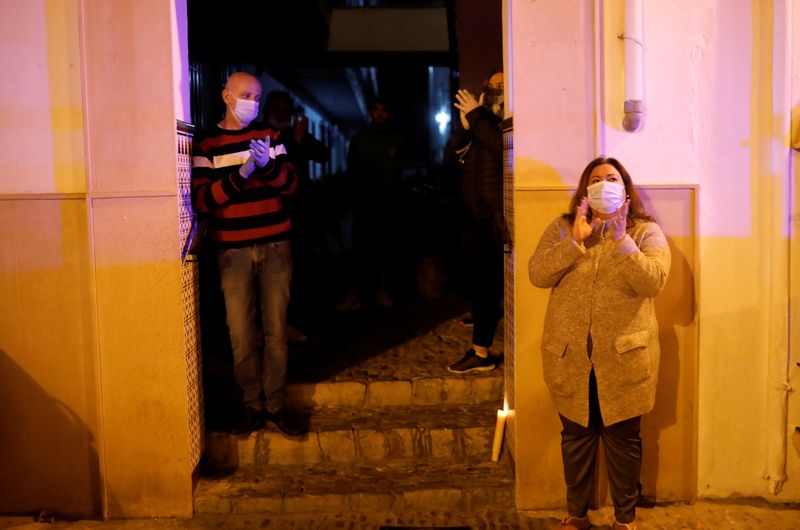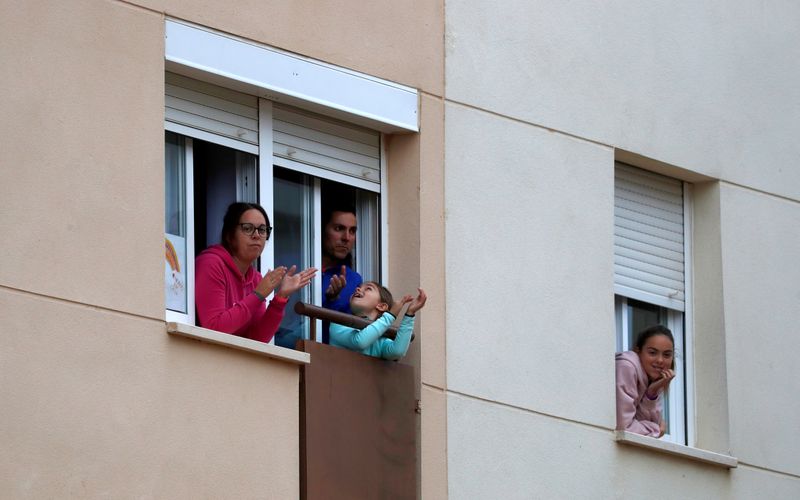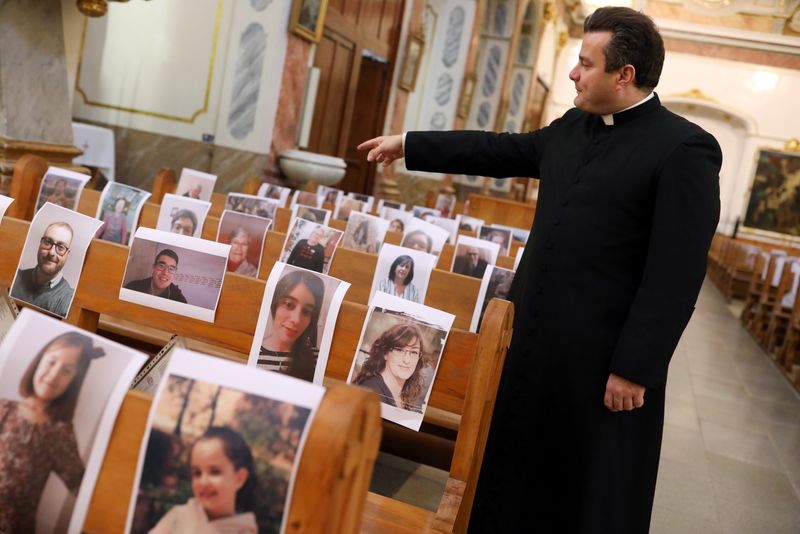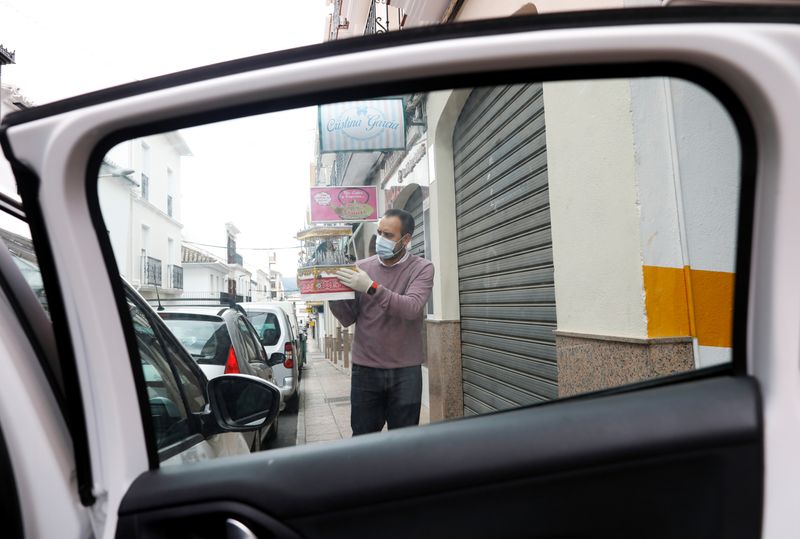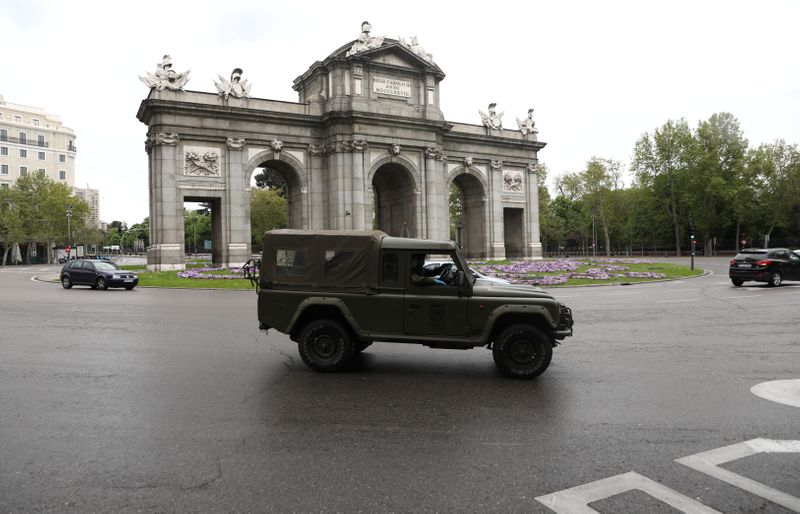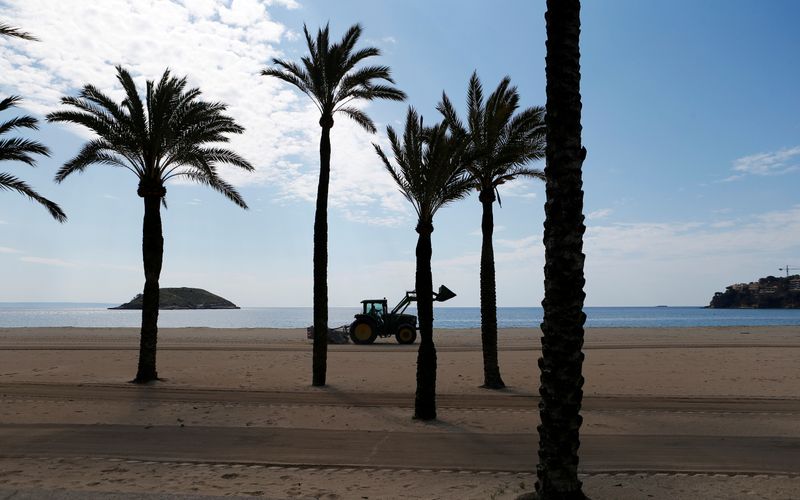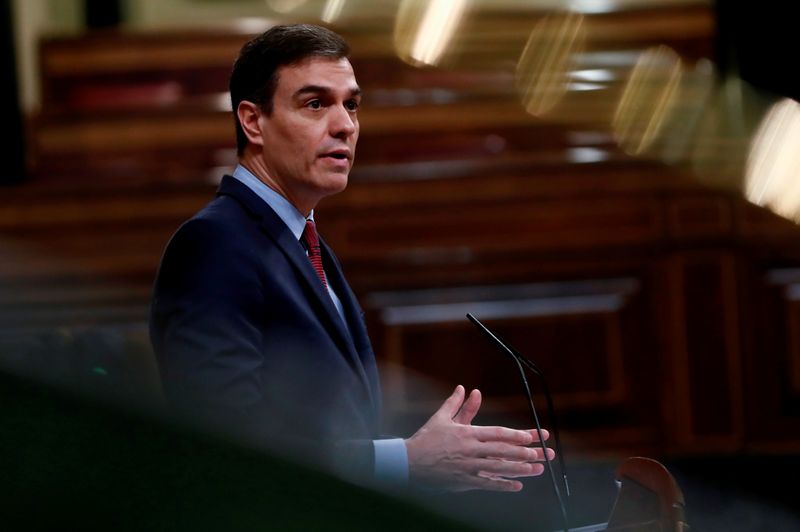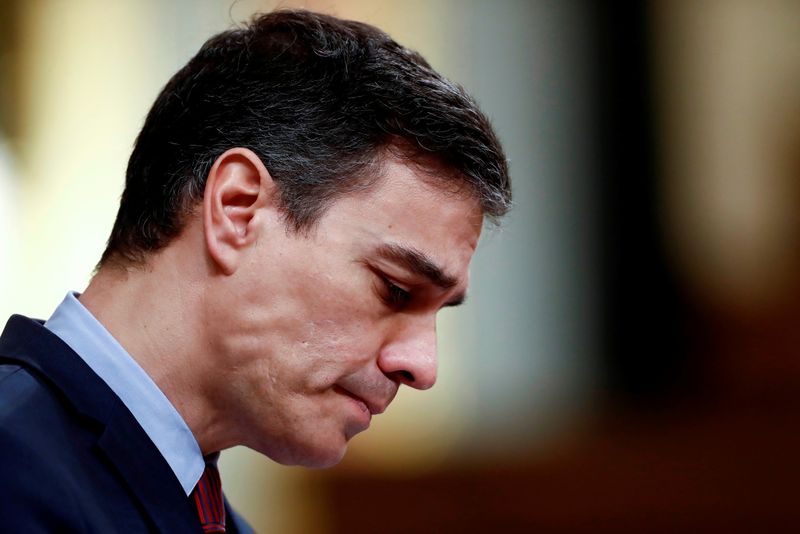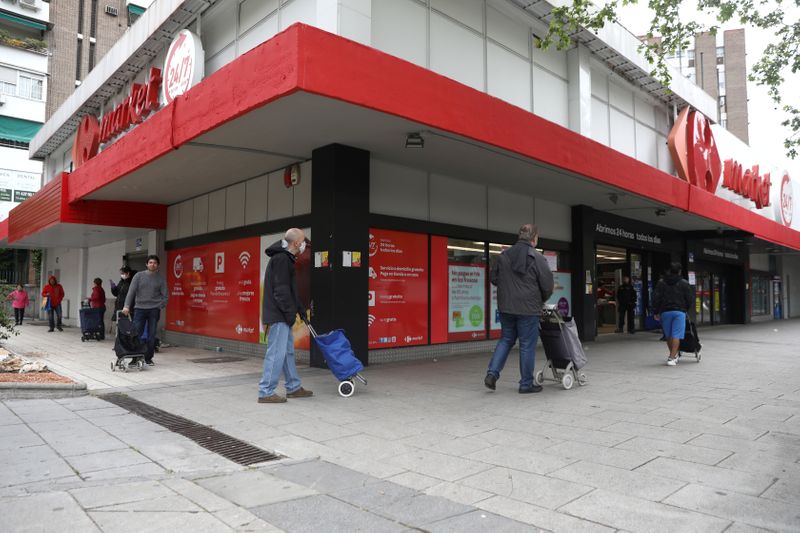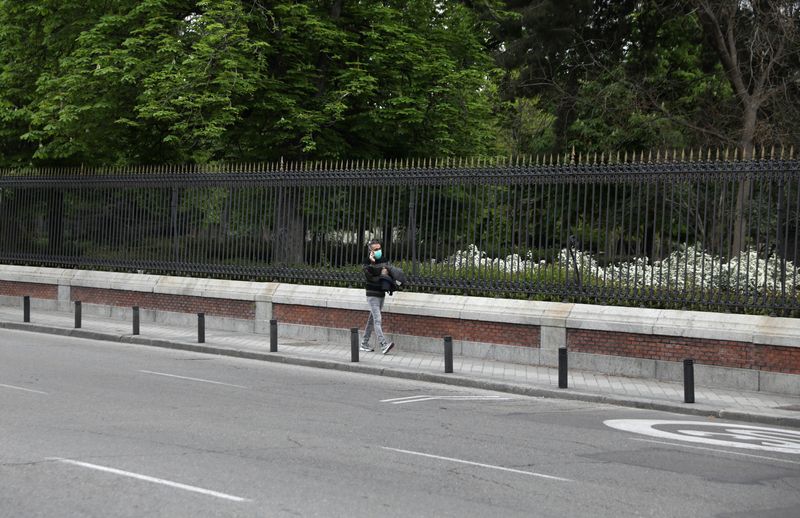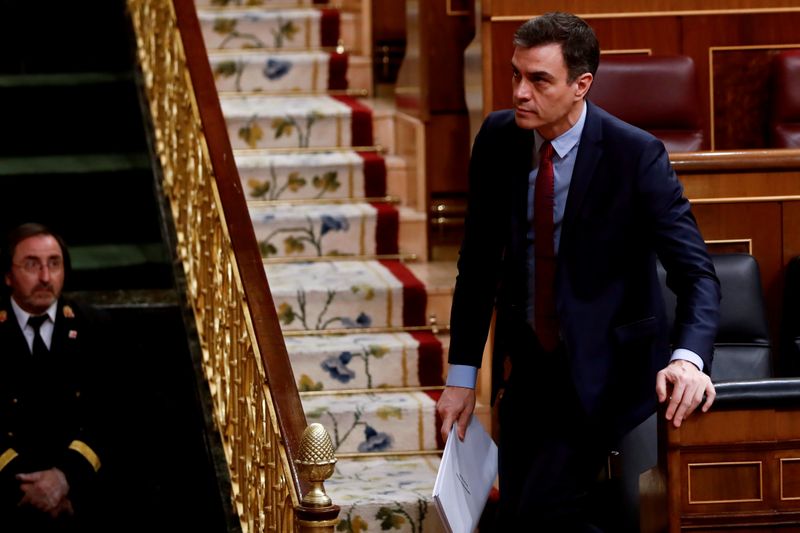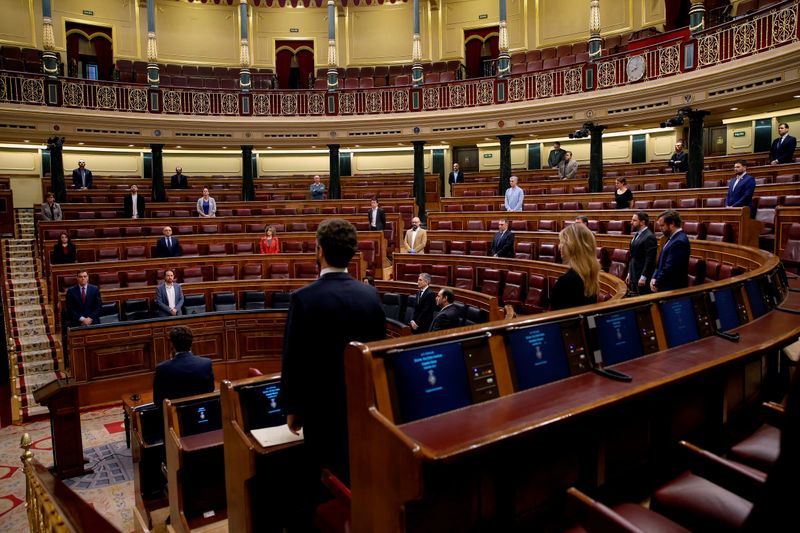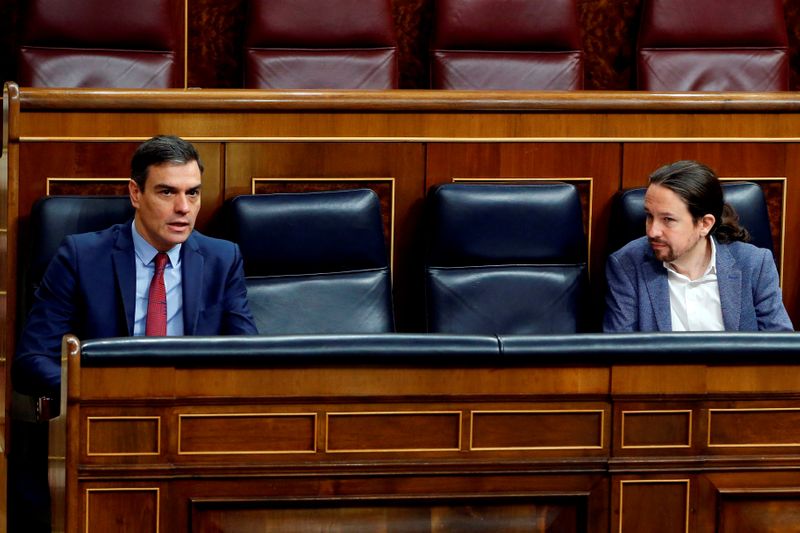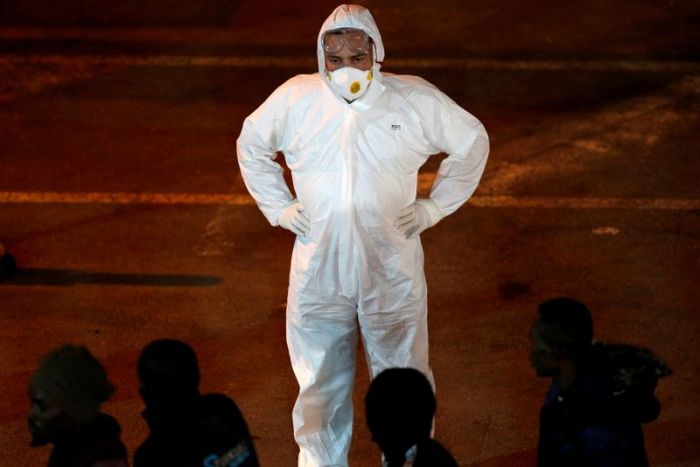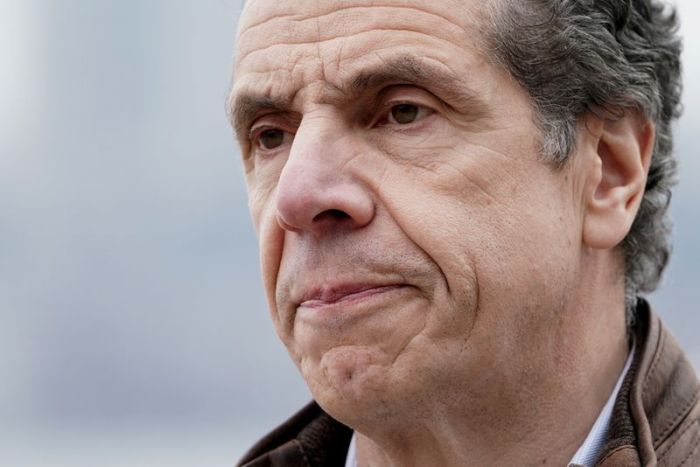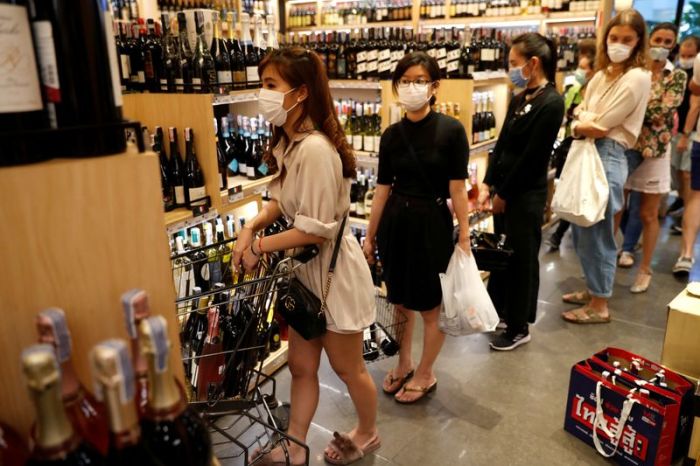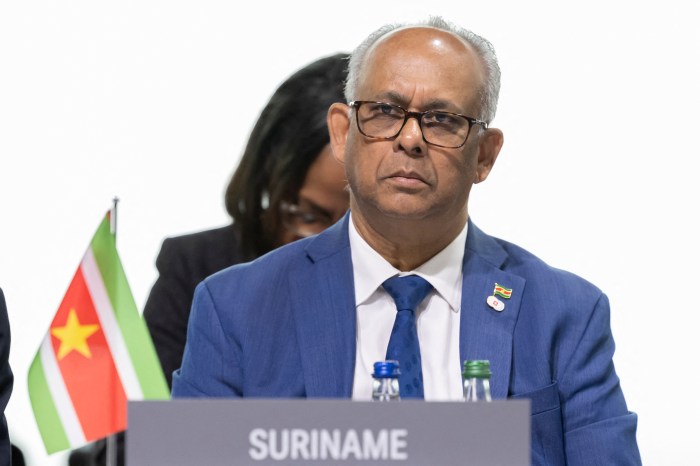MADRID (Reuters) – Spain’s prime minister warned on Thursday that nationwide confinement would likely last until May even though he said the worst should soon be over as the death toll slowed from one of the world’s most devastating coronavirus’ outbreaks.
Speaking to a near-empty parliament as more than 300 lawmakers participated remotely, Prime Minister Pedro Sanchez said the latest data showed Spain was close to the start of a decline in the pandemic.
“The fire starts to come under control,” he said.
Lawmakers approved a 15-day extension of a state of emergency – barring people from leaving homes except for work, food or medicines – until April 26, as well as three economic and labour decrees related to the outbreak.
Some of the few lawmakers present wore masks and gloves. At 8 p.m. those in the chamber clapped, as Spaniards have been doing in recent weeks from their homes to thank health workers.
Sanchez said he was certain he would have to ask parliament in about two weeks for another 15-day extension to the lockdown first declared on March 14.
After two days of increases, the daily coronavirus death toll decreased on Thursday to 683 people, taking the total to 15,238 – second only to Italy, though the ballooning U.S. toll was likely to overtake Spain.
Confirmed cases in Spain rose to 152,446 from 146,690.
“The velocity of the increase of the virus is decreasing throughout Spain,” said Maria Jose Sierra, deputy head of the health emergency centre.
In parliament, Sanchez exhorted all sides in the politically-fractured nation to join an economic revival pact and to meet next week to discuss it.
The government’s proposal is inspired by the 1977 “Pacts of Moncloa” – named for the presidential palace in Madrid – to transform the state-run economy along market lines for the post-Franco dictatorship democratic era.
It seeks to unite political parties, unions, companies and regions behind a common economic reconstruction policy and state welfare funding as Spain, like other Western nations, piles billions of euros into aid and stimulus.
“I propose a great pact for the economic and social reconstruction of Spain,” said Sanchez, a Socialist who leads a leftist coalition government after a series of inconclusive elections.
SOME EASING
The leader of the main opposition People’s Party, Pablo Casado, said the pact appeal seemed insincere, but he backed extending the state of emergency until April 26.
Despite the extension of the overall lockdown, some restrictions on businesses will be lifted – effective on Monday – after shutting down all non-essential operations nearly two weeks ago. Future lifting measures would be gradual and dependent on health data, Sanchez said.
But the leader of Catalonia – the second worst-hit Spanish region – Quim Torra, asked on Thursday for the latter restrictions to be kept 15 more days, saying in a radio interview it would be a “temerity” to lift them.
Sanchez said measures to curb the COVID-19 disease – some of the toughest in Europe – have helped save many lives and slashed the proportional daily increase in new infections to 4% from 22%.
“All Europe arrived late but Spain acted earlier,” he said.
But he warned of a dire aftermath for an economy the main business lobby thinks could slump up to 9% this year. “The immediate economic horizon that we have is dark and we will have to act with all of our available resources,” Sanchez said.
Among potential measures is a “minimum vital income”, Sanchez said, without giving specifics. A tax moratorium for small businesses is also possible, a budget ministry source said.
Spain is irked by European Union (EU) foot-dragging over how to unite efforts for financial recovery, with more fiscally-frugal northern nations like the Netherlands reluctant to inflate debt too much.
“I say it without nuances, our union is in danger,” Sanchez said, before another meeting of EU finance ministers to debate the issue.
(Reporting by Joan Faus and Belen Carreno, additional reporting by Graham Keeley; Writing by Andrei Khalip and Joan Faus; Editing by Andrew Cawthorne and Jonathan Oatis)

